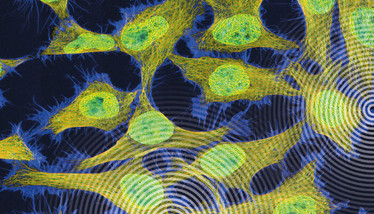
Proving the Worth of ICIs
New evidence points to the safety – and benefits – of immune checkpoint therapy in HIV-positive cancer patients.
Live expectancy for HIV-positive individuals in the US has improved dramatically in recent years (1). Now, the leading cause of death for these patients is cancer. And yet, clinical trials for new cancer therapies continue to exclude HIV-positive patients, restricting clinicians’ abilities to make informed treatment decisions (2). A systematic review of HIV-positive patients treated with the most common form of immunotherapy – immune checkpoint inhibitors (ICIs) – suggests significant benefit, strengthening the hand of scientists arguing for the inclusion of these patients in a wider breadth of trials (3).
“Reviewing the literature, we found a total of 73 HIV positive patients who’d been treated with immune checkpoint therapy,” says Chul Kim, Assistant Professor of Medicine at Georgetown Lombardi Comprehensive Cancer Center, Washington DC – one of the authors of the review. “Seventeen of those were participants in clinical trials – the rest were patients that were essentially treated by their oncologist because the treatment had been approved and has been shown to be largely effective in other studies.”
The focus for the researchers was on safety; for patients with already compromised immune systems, the application of an ICI was a real concern, but the results were better than expected. “The instance of severe immune toxicity in these patients was 8.6 percent. Reassuringly, that wasn’t too dissimilar to the rates seen in non-HIV patients,” says Kim (4).
Another key disease indicator – HIV viral load – was also an area of concern. “Looking at those who had undetectable loads of the HIV virus at baseline before treatment, we found those loads remained undetectable in the majority of patients – so there was no latent virus reactivation,” says Kim. “CD4 cell count in the patients increased a small amount, which we did not expect. Of course, this finding needs to be verified in prospective studies. We’re quite optimistic that the treatment could also have positive effects for HIV specific health issues, in the future.”

Despite these encouraging signs regarding safety, how successful was the actual cancer treatment? “We decided to measure objective response rate,” says Kim. “The result in lung cancer was comparable in those with and without HIV infection. In patients with Kaposi’s sarcoma – which is specific to HIV patients – we also saw quite a high response rate, which suggests it might be a good treatment option, although future confirmatory studies are needed.”
The findings have provided the spark necessary to begin planning a clinical trial for HIV-positive lung cancer patients at Georgetown University, which will incorporate immunotherapy as a first-line treatment. Though primarily focused on proving the safety of the therapy, Kim is optimistic that the trial – the first of its kind – will allow further exploration of several important translational questions. “We’d like to access the impact of immunotherapy on particular subsets of cancer; most other ongoing trials involve patients with a variety of advanced cancers,” he says. “We’re also interested in finding out if we can induce an end to the exhaustion of T cells that typically develops as a result of long term, chronic exposure to HIV.”
- Antiretroviral Therapy Cohort Collaboration, “Survival of HIV-positive patients starting antiretroviral therapy between 1996 and 2013: a collaborative analysis of cohort studies”, Lancet HIV, 4, 8, 349–56 (2017). PMID: 28501495.
- RF Little, “Cancer Clinical Trials in Persons with HIV Infection”, Curr Opin HIV AIDS, 12, 1, 84–88 (2018). PMID: 27559711.
- MR Cook and C Kim, “Safety and Efficacy of Immune Checkpoint Inhibitor Therapy in Patients With HIV Infection and Advanced-Stage Cancer: A Systematic Review”, JAMA Oncol [Epub ahead of print] (2019). PMID: 30730549.
- I Puzanov et al., “Managing toxicities associated with immune checkpoint inhibitors: consensus recommendations from the Society for Immunotherapy of Cancer (SITC) Toxicity Management Working Group”, J Immunother Cancer, 5, 9 [published online] (2017). PMID: 29162153.
















